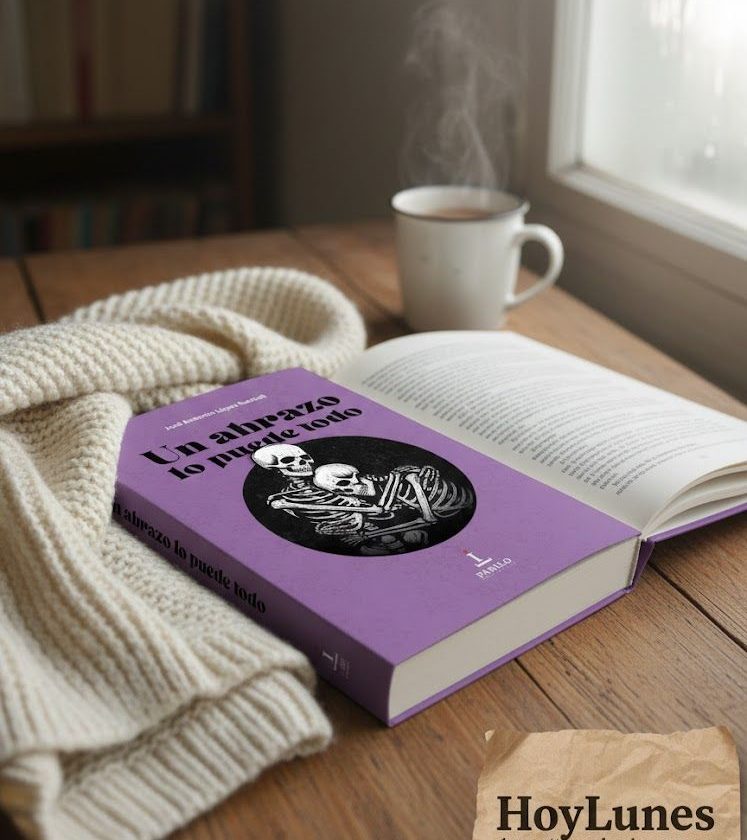Discovering your characters is like falling in love with someone you didn’t expect: first you invent them, then they change you.
By Lidia Roselló
HoyLunes – When I began writing “Thief of Oranges“, I naïvely thought that the hardest part would be inventing the plot. I had scenes in my head, half-written dialogues on loose sheets of paper, and even a fairly clear idea of the ending. But I was missing the most important thing: someone to inhabit that world.
Estela, my protagonist, was born timidly, almost on tiptoe. She had a provisional name (because I wasn’t sure that would be her name in the end) and a vague melancholy… but nothing else. She was like that person you meet at a party and don’t know whether they’ll become your best friend or someone you’ll forget the next day.
The curious thing is that Estela began to grow on her own. She revealed herself to me at the least convenient moments: in the shower, in the car, or just when I had already closed the laptop. She interrupted my coffees and even the occasional nap. And that’s when I understood one of the great truths of writing: characters are not invented, they are discovered.

Imperfect characters, like us
If there’s one thing I’ve learned, it’s that unforgettable characters are not perfect. In fact, the more they make mistakes, the more human they seem. Estela spends half the book doubting, feeling guilty, desiring things she shouldn’t… and precisely that’s what made her real to me.
I didn’t want to write a postcard heroine — one of those who always make the right decision and smile in wedding photos. I wanted a woman with contradictions, like all of us: capable of crying at a traffic light and, five minutes later, laughing at a bad joke.
Many of the secrets that made Estela “Estela” never appear in the book. I gave her invented childhood memories, imaginary conversations, and even arguments with anonymous people that will never see the light of day. But all of that gave me the certainty that, if I set her loose in the world, she would know how to react.
Sometimes people ask me how to give a character a voice. The truth is I don’t have a magic formula: I listen to how they would speak, what words they would repeat, what their tone would be. In my case, Estela had a silence of her own, that way of biting her lips when she didn’t want to answer. She didn’t need more.

Secondary characters that become essential
To be honest, at first I thought “Thief of Oranges” would be “Estela’s story”. And it is. But soon I understood that no one walks alone. That’s how Violeta and María appeared — two friends who started out as background decoration and ended up stealing entire scenes.
Violeta, with her irony and strength, constantly reminded me that Estela couldn’t sink without someone throwing her a rope. And María… María was that uncomfortable mirror that tells you what you don’t want to hear, but need to. Without them, Estela wouldn’t be the same. And I think that’s the magic of secondary characters: they’re not extras, they’re compasses that push the protagonist where she needs to go — even when it hurts.
The trick is to let them be
I believe the great secret to creating unforgettable characters lies in letting them go a little. I, who like to be in control (and you know it), had to learn to let them speak, make mistakes, take paths I would never take. And that’s when the story truly began to beat.

Writing characters is a bit like falling in love: at first you think you’re in charge, but in the end, it’s the character who disarms you — with a gesture, a look, or an unexpected silence. That’s how Estela was born. First, she stole an orange. Then, she stole hearts. And now, every time someone writes to me saying she feels alive, I understand that, in some way, she is.
And you? Are you ready to let your next character interrupt your coffee?
And don’t forget that we’re in “The Orange Room“, an open space where you can share your doubts, your characters, or even that piece of writing you don’t dare show anywhere else. Here, writing is not judged — it’s accompanied.

#hoylunes, #lidia_roselló, #habitación_naranja,



